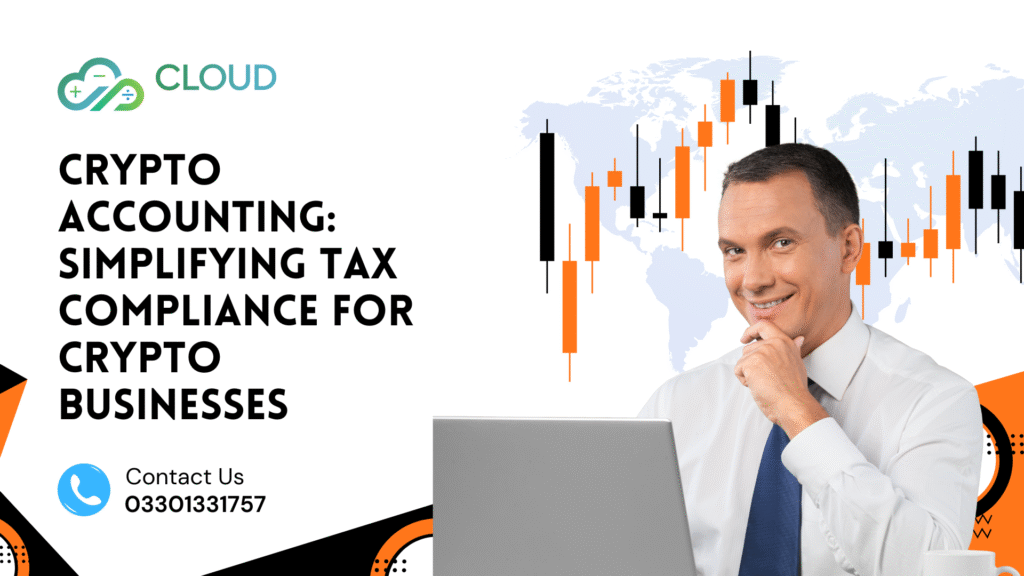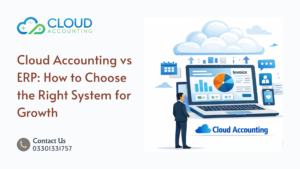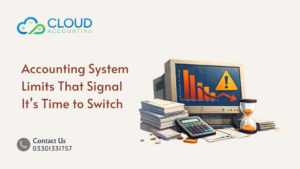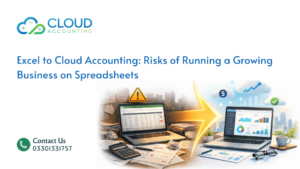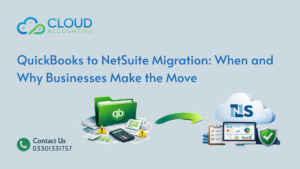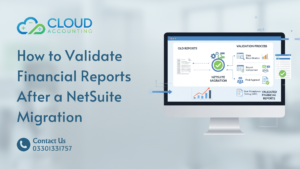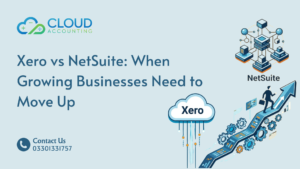Imagine running a crypto business—whether trading Bitcoin, managing an NFT marketplace, or operating a DeFi platform—only to be buried under a mountain of complex transactions and tax headaches. Sound daunting? It is. Crypto Accounting is no walk in the park, with its unique challenges like volatile valuations and intricate blockchain records. In 2025, as cryptocurrency adoption soars with over 420 million global users, Crypto Tax Filing is more critical than ever for staying compliant and profitable. Fortunately, cloud accounting for small business offers powerful blockchain tax solutions to simplify crypto business accounting. Let’s dive into the complexities of crypto accounting, explore tools for seamless tax compliance, and discover why cloud accounting is a must-have for crypto businesses.
The Complexity of Crypto Accounting
Picture this: You’ve just sold an NFT for Ethereum, swapped some Bitcoin for stablecoins, and earned staking rewards—all in one week. Each transaction triggers a potential tax event, and tracking them manually is like solving a puzzle with missing pieces. Crypto Accounting is inherently complex due to the unique nature of cryptocurrencies. Here’s why:
1. Multiple Transaction Types
Crypto businesses deal with a dizzying array of transactions—trading, staking, mining, airdrops, and DeFi yield farming. Each has different tax implications. For instance, the IRS treats crypto as property, meaning every trade or sale triggers a capital gains calculation. According to CoinLedger, tracking cost basis across hundreds of transactions without proper tools is a recipe for errors.
2. Volatile Valuations
Cryptocurrencies are notoriously volatile. A Bitcoin sale today could have a vastly different value than one last month, complicating cost basis and gain calculations. Without real-time reports, as discussed in our financial reporting blog, determining fair market value at the time of each transaction is nearly impossible manually.
3. Regulatory Challenges
Tax regulations for crypto vary by country and are constantly evolving. In the U.S., the IRS requires detailed reporting of all crypto transactions, while the EU’s MiCA framework demands compliance for crypto businesses. CoinTracker notes that failing to report accurately can lead to audits or penalties, making Crypto Tax Filing a high-stakes task.
4. Decentralized Data
Blockchain transactions are scattered across wallets, exchanges, and DeFi platforms, creating data silos. Manually aggregating this data for crypto business accounting is time-consuming and error-prone, especially for businesses with high transaction volumes.
These complexities make Crypto Accounting a challenge, but the right tools can simplify the process, ensuring compliance and clarity.
Tools and Solutions for Crypto Tax Filing
Thankfully, blockchain tax solutions and cloud accounting platforms are here to save the day. By integrating specialized crypto tools with cloud accounting software like Xero or QuickBooks, businesses can streamline Crypto Tax Filing. Here are the top tools and solutions for 2025:
1. Crypto Tax Software: CoinLedger and CoinTracker
CoinLedger and CoinTracker are leading blockchain tax solutions designed to simplify Crypto Tax Filing. These platforms connect to your wallets and exchanges (e.g., Coinbase, Binance) to import transaction data automatically. They calculate cost basis, capital gains, and losses, generating tax-ready reports like IRS Form 8949.
- CoinLedger: Supports over 100 exchanges and offers real-time portfolio tracking. It integrates with Xero and QuickBooks, syncing tax data for seamless financial reporting. CoinLedger claims users save an average of 10 hours per tax season.
- CoinTracker: Provides detailed DeFi and NFT tracking, crucial for complex crypto businesses. Its Xero integration ensures accurate journal entries, as noted in our A2X blog for e-commerce parallels.
2. Cloud Accounting Platforms: Xero and QuickBooks
Cloud accounting platforms like Xero and QuickBooks are essential for crypto business accounting. They integrate with crypto tax tools to consolidate financial data. Xero, for example, supports integrations with CoinLedger, allowing businesses to import crypto transactions as journal entries. QuickBooks’ multi-currency support handles volatile crypto valuations, as highlighted in our cloud accounting tools blog. These platforms offer automated financial reports, making tax preparation a breeze.
3. A2X for Crypto Marketplaces
For crypto businesses selling on marketplaces like OpenSea, A2X for e-commerce accounting (as discussed in our A2X blog) can be adapted for NFT or token sales. A2X automates reconciliation of marketplace payouts, categorizing sales, fees, and taxes. By integrating with Xero, A2X ensures accurate financial reporting for crypto transactions, reducing manual effort.
4. Blockchain Analytics Tools
Tools like Blockpit and Koinly provide advanced analytics for DeFi and staking transactions. They track on-chain activities, calculate taxable events, and export data to cloud accounting platforms. Blockpit emphasizes compliance with EU regulations, making it ideal for global crypto businesses.
5. eSeller Accountants
Navigating Crypto Accounting requires expertise. eSeller Accountants, as noted in our Xero migration blog, can configure Xero or QuickBooks for crypto businesses, integrating tools like CoinLedger or A2X. They ensure proper tax mappings, compliance with local regulations, and team training, saving you time and reducing risks.
These tools transform Crypto Tax Filing from a nightmare into a manageable process, leveraging automation and integration to ensure accuracy and compliance.
Why Cloud Accounting Is Essential for Crypto Businesses
Cloud accounting for small business is a lifeline for crypto businesses, addressing their unique challenges with flexibility and efficiency. Here’s why it’s essential in 2025:
1. Real-Time Data for Volatile Markets
Crypto prices fluctuate wildly, and real-time reports are critical for accurate Crypto Accounting. Cloud platforms like Xero provide live dashboards tracking revenue, expenses, and tax liabilities. For example, a crypto trader can monitor capital gains in real-time, ensuring precise tax calculations. As NerdWallet notes, 65% of businesses using cloud accounting value real-time insights for decision-making.
2. Automation to Handle Complexity
Crypto businesses deal with thousands of transactions across multiple platforms. Manual tracking is impractical, but cloud accounting automates data import and categorization. Integrating CoinTracker with Xero, for instance, automates journal entries for trades and staking rewards, saving hours, as discussed in our financial reporting blog. This reduces errors and frees up time for strategic growth.
3. Scalability for Growth
As crypto businesses scale—launching new tokens, entering DeFi, or expanding globally—cloud accounting adapts effortlessly. Xero’s multi-currency support and app ecosystem handle complex transactions without costly upgrades, as highlighted in our Xero migration blog. This scalability ensures your crypto business accounting keeps pace with growth.
4. Enhanced Security
Blockchain may be secure, but your financial data needs protection too. Cloud platforms use bank-grade encryption and multi-factor authentication, as noted in TechRadar. Unlike local systems vulnerable to hardware failure, cloud accounting ensures your data is safe and recoverable, critical for Crypto Accounting.
5. Seamless Compliance
With evolving regulations, Crypto Tax Filing demands precision. Cloud accounting platforms integrate with blockchain tax solutions to generate compliant reports. For example, Xero’s integration with CoinLedger ensures accurate VAT and capital gains reporting, reducing audit risks. This compliance is vital for crypto businesses operating in multiple jurisdictions.
Call-to-Action: Simplify Your Crypto Accounting Today
Ready to take control of your Crypto Accounting in 2025? Don’t let complex transactions and tax compliance slow you down. Embrace cloud accounting for small business with platforms like Xero or QuickBooks, and integrate blockchain tax solutions like CoinLedger or A2X for seamless Crypto Tax Filing. Contact an eSeller Accountant for expert Xero Setup and tool integration tailored to your crypto business. Schedule a free consultation at Xero’s Advisor Directory or CoinLedger’s Partners and streamline your financials now.
Conclusion
Crypto Accounting is complex, but cloud accounting for small business makes it manageable. By leveraging tools like CoinLedger, A2X, and Xero, crypto businesses can simplify Crypto Tax Filing, ensure compliance, and gain real-time insights. With automation, scalability, and security, cloud accounting is essential for navigating the volatile crypto landscape in 2025. Whether you’re trading, staking, or selling NFTs, embrace blockchain tax solutions and cloud platforms to streamline your crypto business accounting and thrive in the digital economy.

